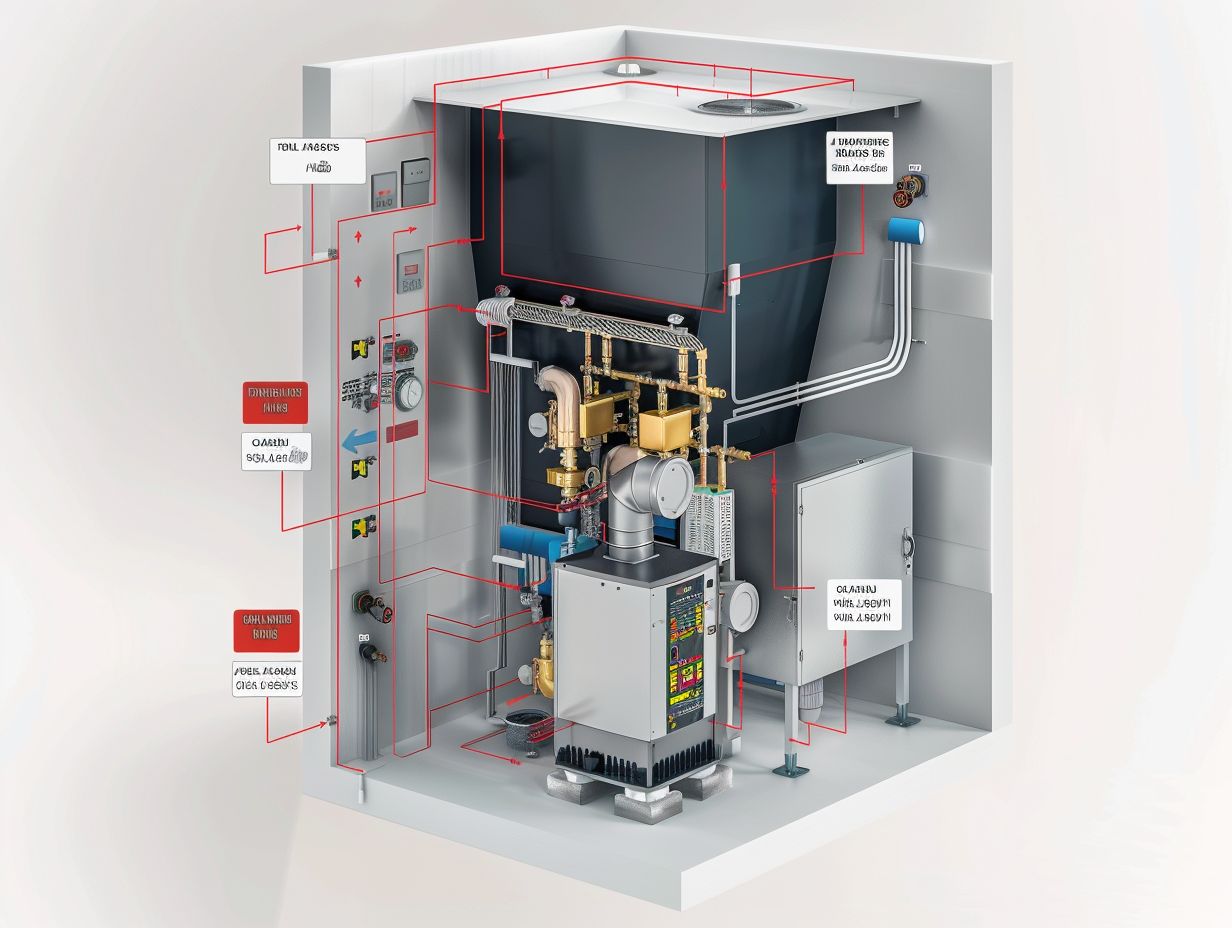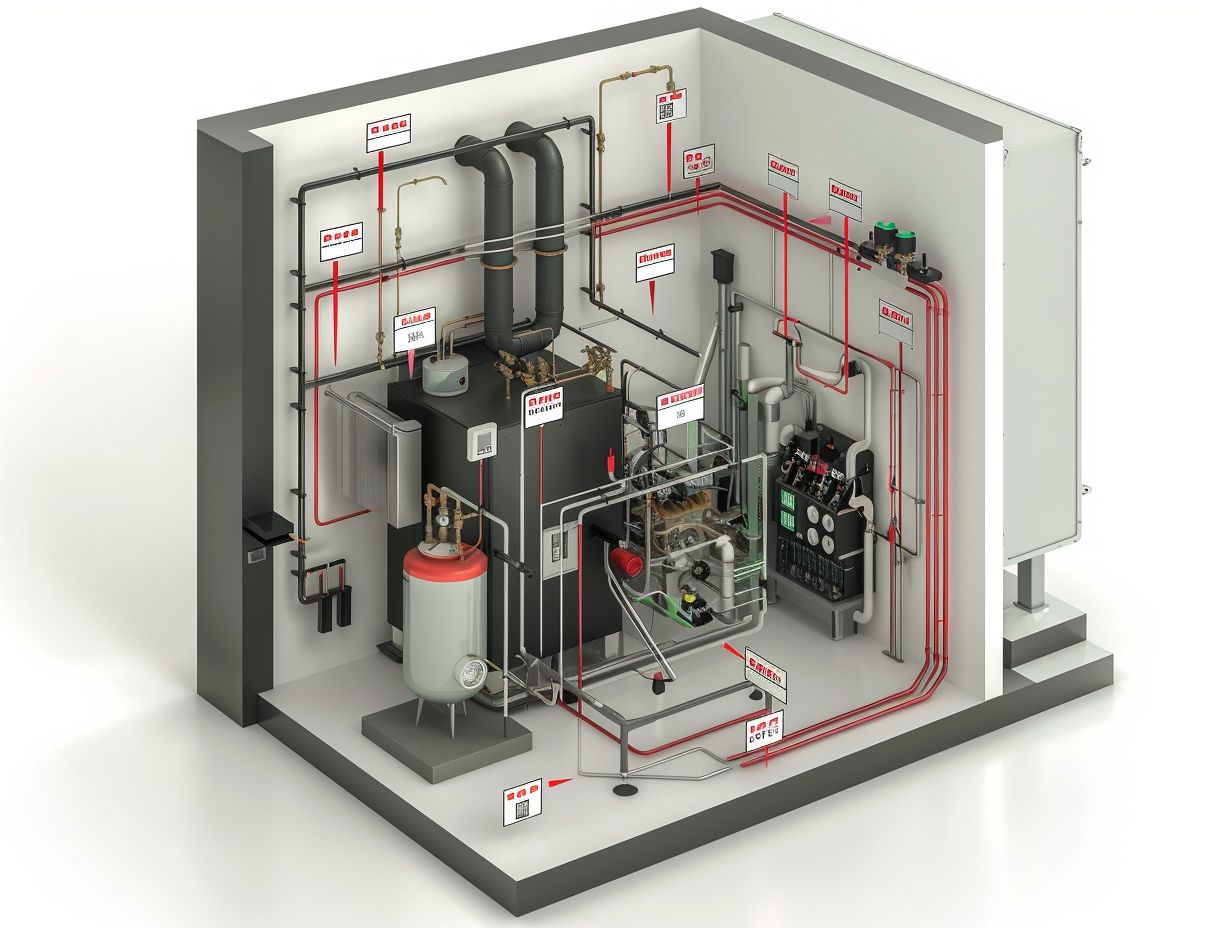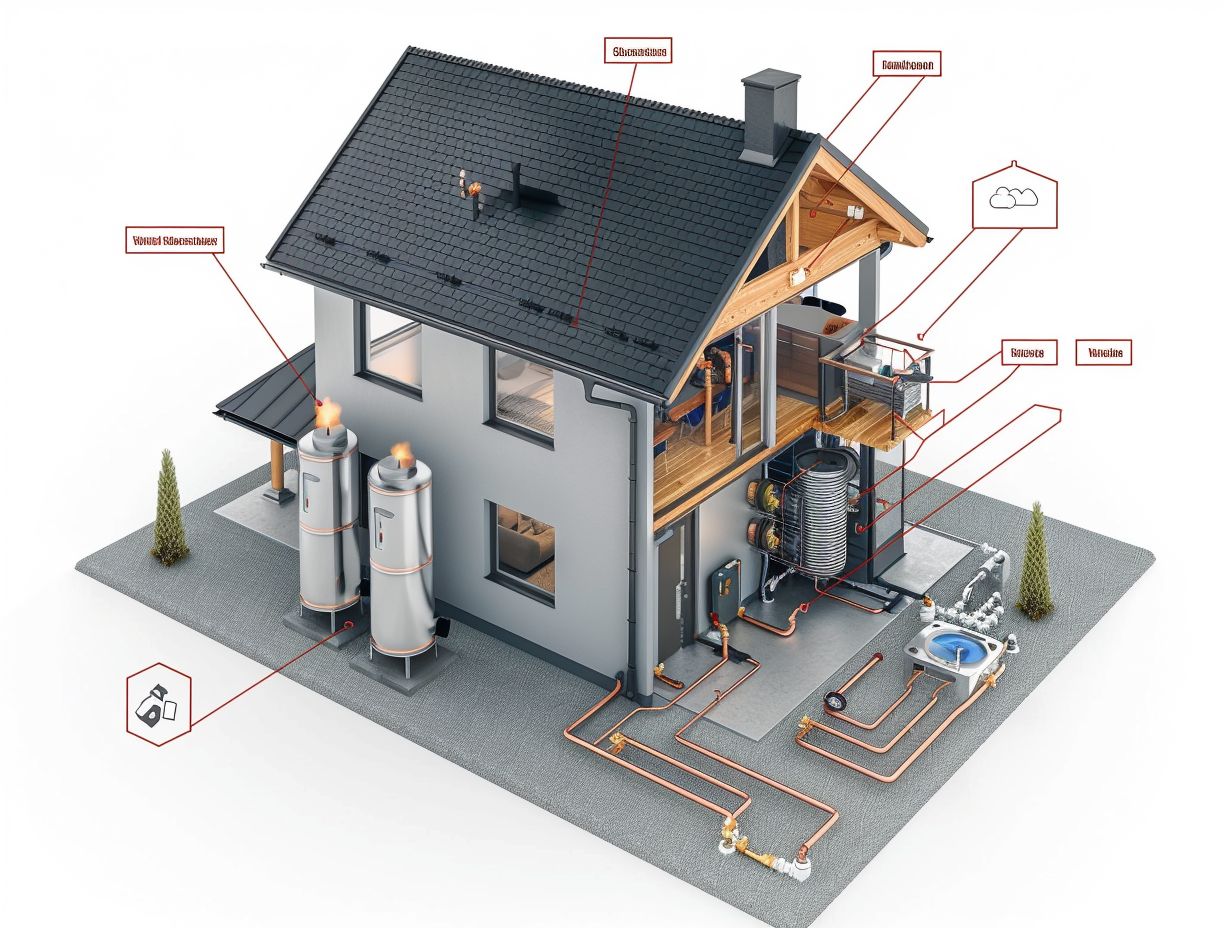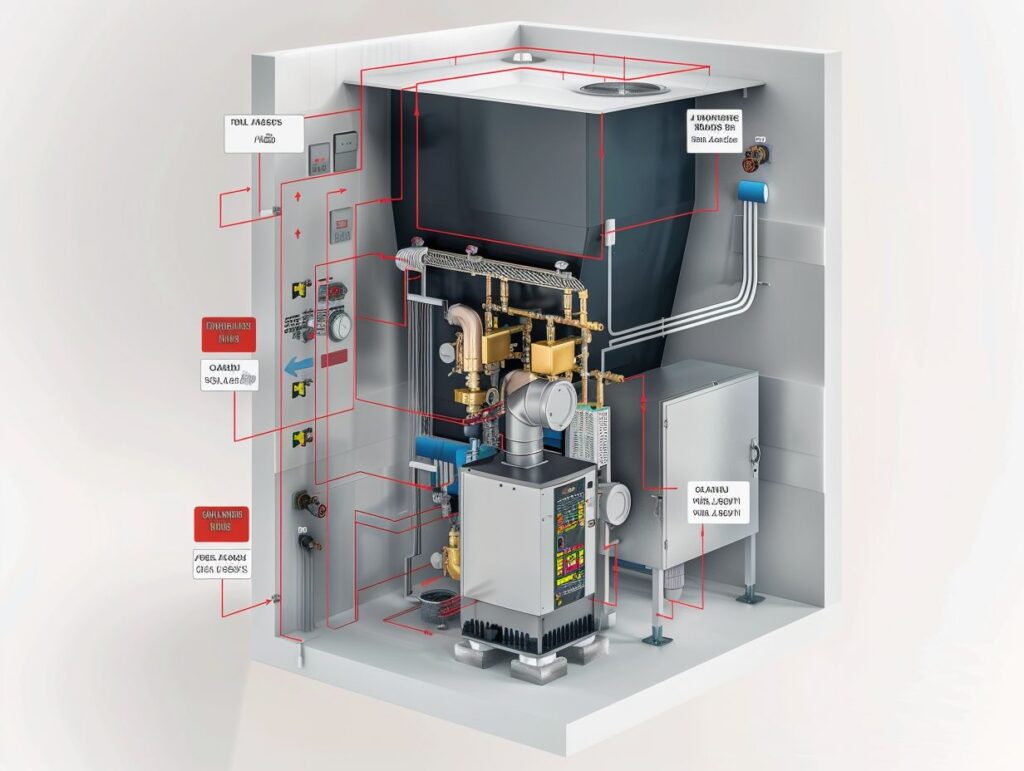If you are considering dual fuel heating for your home but are uncertain about the safety considerations, this article will offer you a comprehensive guide. It will cover understanding dual fuel heating, its benefits, safety precautions, and selecting the appropriate system for your requirements.
Additionally, we will delve into the best practices for maintaining and operating a dual fuel system to guarantee safety and efficiency. Stay engaged to gain a thorough understanding of dual fuel heating.
Key Takeaways:

- Dual fuel heating systems combine the use of two different fuel sources, typically gas and electricity, to provide efficient and cost-saving heating for homes and businesses.
- Safety precautions must be taken when operating a dual fuel heating system, including proper installation, regular maintenance, and being aware of potential hazards such as gas leaks or electrical malfunctions.
- When choosing a dual fuel system, factors such as available fuel sources, climate, and budget should be carefully considered to ensure safe and effective use of the system.
Safety Considerations for Dual Fuel Heating
Safety Considerations for Dual Fuel Heating are crucial for ensuring the wellbeing of individuals and properties. You must understand and address potential hazards associated with dual-fuel heaters, especially those utilising natural gas, to guarantee safe and efficient operation.
Regular maintenance plays a pivotal role in preventing malfunctions and ensuring the system functions effectively. Professionals recommend scheduling annual inspections to detect and promptly address any issues.
Installing carbon monoxide detectors near the heating unit is essential to notify occupants in the event of a leak. Proper ventilation is critical for preventing the accumulation of harmful gases.
By maintaining a proactive approach and adhering to safety guidelines, dual fuel heating systems can provide reliable comfort without compromising safety.
Potential Hazards and Precautions
Identifying potential hazards and taking precautions are essential steps in maintaining a safe and efficient dual fuel system. Regular maintenance is crucial to ensure the system operates optimally and delivers on the environmental benefits it promises.
Regular maintenance of dual fuel systems also plays a critical role in preventing potential hazards, such as gas leaks, combustion issues, and improper functioning of components. By conducting routine inspections and servicing, you can detect and rectify any issues before they escalate, thereby reducing the risk of accidents.
Following manufacturer guidelines for maintenance requirements and scheduling professional tune-ups can enhance the system’s longevity and efficiency while minimising the environmental impact through optimised fuel consumption.
Choosing the Right Dual Fuel System
When selecting the Right Dual Fuel System, it is crucial for you to ensure optimal efficiency and comfort in your home. Various factors such as heating methods, technological advancements, and zoned heating capabilities need to be considered to ensure that the system you choose meets your specific requirements.
In the process of choosing a dual fuel system, it is essential for you to accurately assess your heating needs. Factors like the size of your property, preferred heating technologies, and the potential benefits of zoned heating for optimising energy usage should all be taken into account.
The integration of advanced technologies in dual fuel systems can significantly enhance their performance and energy efficiency, providing you with a more cost-effective heating solution. By carefully evaluating these factors, you can select a dual fuel system that not only keeps your home comfortable but also helps you save on energy costs in the long run.
Factors to Consider

When you are selecting a dual fuel system, it is important to consider factors such as your location (e.g., Portland), installation requirements, backup power options, and system reliability. These considerations are crucial to guarantee optimal performance and durability.
Homeowners must take into account their specific geographical location, especially in areas like Portland with fluctuating weather conditions. The system’s ability to efficiently switch between different fuel sources is vital for maintaining comfortable indoor temperatures.
Additionally, paying attention to the installation process is essential for ensuring smooth operation and maximising energy efficiency. Moreover, the reliability of the dual fuel system is of utmost importance as homeowners rely on it to ensure year-round comfort in their homes.
Maintaining and Operating a Dual Fuel System
Proper maintenance and operation of a Dual Fuel System are essential to ensure its longevity and efficiency. You must conduct regular maintenance, utilise smart thermostat technology, and ensure a stable power supply to maximise the system’s performance.
By performing routine upkeep tasks such as cleaning filters, inspecting for leaks, and checking ventilation, you can prevent major issues and prolong the life of your dual fuel system. Implementing a smart thermostat enables precise temperature control, minimising energy wastage, and enhancing comfort levels.
Efficiently managing power usage by scheduling high-energy activities helps avoid system overload and improves overall performance. Adhering to these best practices not only sustains system health but also leads to cost savings and promotes environmental sustainability.
Best Practices for Safe and Effective Use
Implementing Best Practices ensures the Safe and Effective Use of a dual fuel heating system. Leveraging smart home technology, promoting environmental sustainability, and embracing the versatility of dual fuel systems are key elements in maximising their benefits.
By integrating smart thermostats and zoning systems within your home, you can optimise the efficiency of your dual fuel heating setup effortlessly. These technological advancements allow you to control heating settings remotely, adjust temperatures based on occupancy patterns, and monitor energy usage in real-time. This not only enhances comfort but also significantly reduces energy wastage.
The environmental benefits of dual fuel systems lie in their ability to switch between different fuel sources based on cost and availability, minimising the overall carbon footprint. The versatility of dual fuel systems allows them to adapt to varying weather conditions, ensuring consistent heating performance throughout the year.
Frequently Asked Questions
What are the safety considerations of dual fuel heating?

There are several important safety considerations to keep in mind when using dual fuel heating systems:
– Ensure proper ventilation to prevent carbon monoxide buildup
– Regularly inspect and maintain all components of the system
– Follow manufacturer instructions for proper installation and use
– Keep flammable materials away from the heating unit
Is there a risk of fire with dual fuel heating?
When installed and used correctly, dual fuel heating systems pose a low risk of fire. However, it is important to regularly inspect and maintain the system to ensure safe operation. Keep flammable materials away from the heating unit and follow all safety guidelines provided by the manufacturer.
Can carbon monoxide be a concern with dual fuel heating?
Yes, carbon monoxide can be a concern with any heating system, including dual fuel. It is important to have proper ventilation and install carbon monoxide detectors near the heating unit. Regular maintenance and inspections of the system can also help prevent carbon monoxide buildup.
Are there any special safety precautions for the use of propane in dual fuel heating?
Yes, when using propane in a dual fuel heating system, it is important to keep the storage tank and fuel lines in good condition. Check for leaks regularly and have the system inspected by a professional at least once a year. It is also important to follow all safety guidelines provided by the manufacturer.
What should I do if I smell gas when using my dual fuel heating system?
If you smell gas, immediately turn off the system and leave your home. Do not turn on any electrical switches or use your phone until you are safely outside. Call your gas company or emergency services for assistance.
Are there any safety concerns with the use of electricity in a dual fuel heating system?
While electricity is generally considered a safe and clean fuel source, there is always a risk of electrical fires. It is important to have a professional install and regularly inspect the electrical components of your dual fuel heating system to ensure safe operation.

